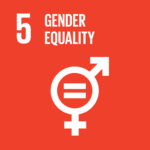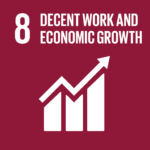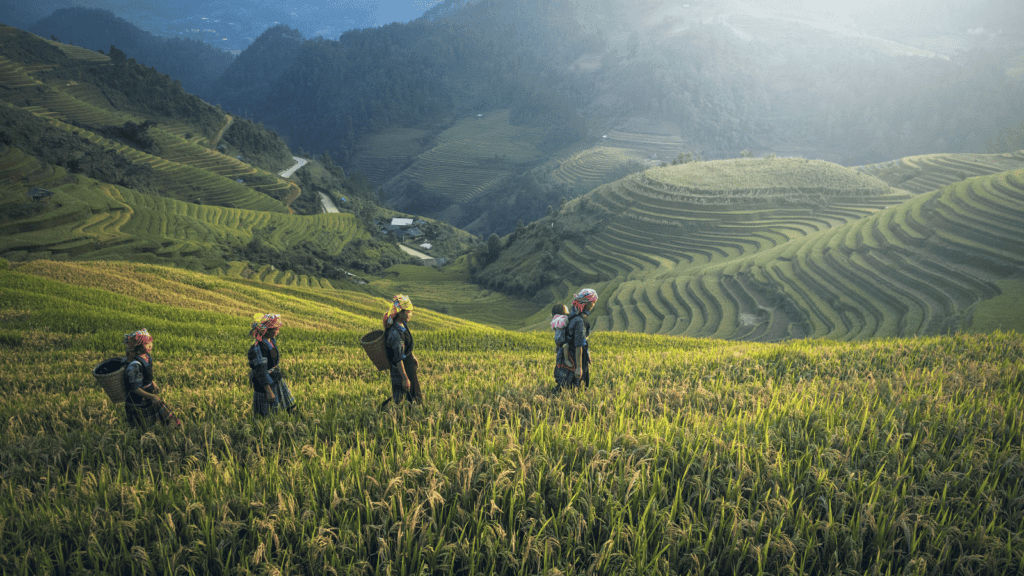If there was ever a perfect time to empower women in agriculture , it’s now. Supporting women farmers would help hundreds of millions fight hunger, poverty and climate change.
The fight for gender equality is a lifelong battle that we have to face. It involves continuously discovering that gender inequality still exists in many forms. Roles associated with our gender identity have become gender biases which give us limitations on how to act and make decisions.
RELEVANT SUSTAINABLE GOALS



This is because our lives are categorized based on whether we were born or identified as men or women. This issue especially affects women suffering from the patriarchal culture in our society which puts women in marginalized groups for decades. Stripping women of their fundamental rights also includes excluding them and not acknowledging their voices on social and political matters, eventually creating more gaps between men and women in every aspect of life. Although such problems arose, there have been many movements that have led to greater equality for women. These movements especially focus on giving women options in every aspect of life and amplifying their voices, giving them equal opportunities to better their livelihoods and contribute to their communities.
GrowHer : Empowering Women in Agriculture
One of the most crucial movements in terms of women’s empowerment is to support women in their economic activities—including the whole variety of economic sectors, considering that the economy is one of the key factors of our primary needs.
One of their recent works focuses on Women’s Economic Empowerment, especially involving women in agriculture, called GrowHer. GrowHer is a multi-donor impact fund that will incentivize public and private investment into actions, practices, and policies that accelerate diversity and inclusion. These impact funds will channel more than USD 20M over the next three years into strengthening Southeast Asia’s food, agriculture, and forestry sectors.
According to research conducted by Grow Asia, empowering women in agriculture as decision-makers drive equitable economic growth, injects more cash into rural economies, and increases investments in solutions and services that help communities thrive. Grow Asia is a movement established by the World Economic Forum in collaboration with the ASEAN Secretariat. It aims to convene, facilitate, and scale efforts that promote a more inclusive, resilient, and sustainable food system in Southeast Asia.
Sopha Soeng a Cambodian entrepreneur from Sela Pepper co. LTD said that getting women more involved in agriculture starts with how women can become farmers and not just “a woman or a housewife.”
On the other hand, Rebecca Imbok from Nakama Agri-business Incorporation in Papua New Guinea talks about the challenges women must face to become a farmer. She talks about how men own the land while women and children become laborers on the farm. She said that to break the land barrier, she had to tell “the fathers” that they had to give some of the areas so that women could farm their cocoa trees and have their own money. These prove that women are robbed of the basic rights to have options and equal opportunity to be whomever they want, including farmers.
I would like to encourage all women in agriculture to keep it up and use our strengths to overcome all those challenges.
Sothearath Sok, a Cambodian entrepreneur from the Junlen community
Vietnamese entrepreneur Trần Chí Thành talks about how women as farmers should have access to training and channels to exchange agriculture knowledge. In the Philippines, Melissa Frias says that women farmers should be helped to widen their knowledge, especially in terms of the farming process. Alice Sotto, a local farmer from the Philippines, also said that women farmers should be given financial aid. These are the concerns that women who already became farmers have to face. Even when they are already “a farmer,” their choices and resources are still limited compared to men farmers. Indonesian entrepreneur, Ihsan Mulia Putri from Global Dairi Alami Ltd., said that this issue is not just a women’s issue; rather, it’s about being inclusive and accepting diversity so that we can combine the strengths of different people and perspectives. “I would like to encourage all women in agriculture to keep it up and use our strengths to overcome all those challenges.” – Sothearath Sok, a Cambodian entrepreneur from the Junlen community.
You may also be interested in :
Grow Asia’s USD 1.6 Million Multi-Donor Impact Fund Boosting Women’s Economic Empowerment


